
Intel Core i9-11900K vs AMD Ryzen 9 5900X
Last updated:
CPU comparison with benchmarks
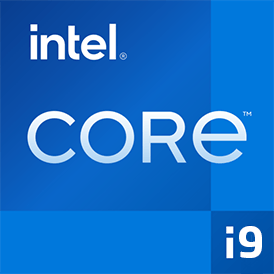
|
 |
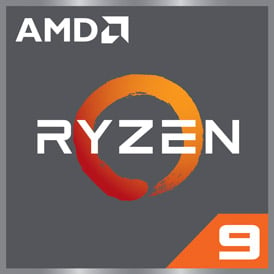
|
| Intel Core i9-11900K | AMD Ryzen 9 5900X | |
CPU comparisonIn this CPU comparison, we compare the Intel Core i9-11900K and the AMD Ryzen 9 5900X and use benchmarks to check which processor is faster.
We compare the Intel Core i9-11900K 8 core processor released in Q1/2021 with the AMD Ryzen 9 5900X which has 12 CPU cores and was introduced in Q4/2020. |
||
| Intel Core i9 (78) | Family | AMD Ryzen 9 (35) |
| Intel Core i 11000 (22) | CPU group | AMD Ryzen 5000 (12) |
| 11 | Generation | 4 |
| Rocket Lake S | Architecture | Vermeer (Zen 3) |
| Desktop / Server | Segment | Desktop / Server |
| Intel Core i9-10900K | Predecessor | AMD Ryzen 9 3900X |
| Intel Core i9-12900K | Successor | AMD Ryzen 9 7900X |
|
|
||
CPU Cores and Base FrequencyThe Intel Core i9-11900K is a 8 core processor with a clock frequency of 3.50 GHz (5.30 GHz). The processor can compute 16 threads at the same time. The AMD Ryzen 9 5900X clocks with 3.70 GHz (4.80 GHz), has 12 CPU cores and can calculate 24 threads in parallel. |
||
| Intel Core i9-11900K | Characteristic | AMD Ryzen 9 5900X |
| 8 | Cores | 12 |
| 16 | Threads | 24 |
| normal | Core architecture | normal |
| Yes | Hyperthreading | Yes |
| Yes | Overclocking ? | Yes |
| 3.50 GHz | Frequency | 3.70 GHz |
| 5.30 GHz | Turbo Frequency (1 Core) | 4.80 GHz |
| 4.80 GHz | Turbo Frequency (All Cores) | 4.50 GHz |
Internal GraphicsGraphics (iGPU) integrated into the processor not only enable image output without having to rely on a dedicated graphics solution, but can also efficiently accelerate video playback. |
||
| Intel UHD Graphics 750 | GPU | no iGPU |
| 0.35 GHz | GPU frequency | -- |
| 1.30 GHz | GPU (Turbo) | -- |
| 12 | GPU Generation | -- |
| 14 nm | Technology | |
| 3 | Max. displays | |
| 32 | Compute units | -- |
| 256 | Shader | -- |
| No | Hardware Raytracing | No |
| No | Frame Generation | No |
| 64 GB | Max. GPU Memory | -- |
| 12 | DirectX Version | -- |
Hardware codec supportA photo or video codec that is accelerated in hardware can greatly accelerate the working speed of a processor and extend the battery life of notebooks or smartphones when playing videos. |
||
| Intel UHD Graphics 750 | GPU | no iGPU |
| Decode / Encode | Codec h265 / HEVC (8 bit) | No |
| Decode / Encode | Codec h265 / HEVC (10 bit) | No |
| Decode / Encode | Codec h264 | No |
| Decode / Encode | Codec VP9 | No |
| Decode | Codec VP8 | No |
| Decode | Codec AV1 | No |
| Decode / Encode | Codec AVC | No |
| Decode | Codec VC-1 | No |
| Decode / Encode | Codec JPEG | No |
Memory & PCIeUp to 128 GB of memory in a maximum of 2 memory channels is supported by the Intel Core i9-11900K, while the AMD Ryzen 9 5900X supports a maximum of 128 GB of memory with a maximum memory bandwidth of 51.2 GB/s enabled. |
||
| Intel Core i9-11900K | Characteristic | AMD Ryzen 9 5900X |
| DDR4-3200 | Memory | DDR4-3200 |
| 128 GB | Max. Memory | 128 GB |
| 2 (Dual Channel) | Memory channels | 2 (Dual Channel) |
| 51.2 GB/s | Max. Bandwidth | 51.2 GB/s |
| No | ECC | Yes |
| 4.00 MB | L2 Cache | 6.00 MB |
| 16.00 MB | L3 Cache | 64.00 MB |
| 4.0 | PCIe version | 4.0 |
| 20 | PCIe lanes | 20 |
| 39.4 GB/s | PCIe Bandwidth | 39.4 GB/s |
Thermal ManagementThe Intel Core i9-11900K has a TDP of 125 W. The TDP of the AMD Ryzen 9 5900X is 105 W. System integrators use the TDP of the processor as a guide when dimensioning the cooling solution. |
||
| Intel Core i9-11900K | Characteristic | AMD Ryzen 9 5900X |
| 125 W | TDP (PL1 / PBP) | 105 W |
| 251 W @ 56 s | TDP (PL2) | 142 W |
| -- | TDP up | -- |
| 95 W | TDP down | -- |
| 100 °C | Tjunction max. | 90 °C |
Technical detailsThe Intel Core i9-11900K has 20.00 MB cache and is manufactured in 14 nm. The cache of AMD Ryzen 9 5900X is at 70.00 MB. The processor is manufactured in 7 nm. |
||
| Intel Core i9-11900K | Characteristic | AMD Ryzen 9 5900X |
| 14 nm | Technology | 7 nm |
| Monolithic | Chip design | Chiplet |
| x86-64 (64 bit) | Instruction set (ISA) | x86-64 (64 bit) |
| SSE4.1, SSE4.2, AVX2, AVX-512 | ISA extensions | SSE4a, SSE4.1, SSE4.2, AVX2, FMA3 |
| LGA 1200 | Socket | AM4 (PGA 1331) |
| VT-x, VT-x EPT, VT-d | Virtualization | AMD-V, SVM |
| Yes | AES-NI | Yes |
| Windows 10, Windows 11, Linux | Operating systems | Windows 10, Windows 11, Linux |
| Q1/2021 | Release date | Q4/2020 |
| 539 $ | Release price | 549 $ |
| show more data | show more data | |
Rate these processors
Average performance in benchmarks
⌀ Single core performance in 6 CPU benchmarks
⌀ Multi core performance in 8 CPU benchmarks
Cinebench R23 (Single-Core)
Cinebench R23 is the successor of Cinebench R20 and is also based on the Cinema 4 Suite. Cinema 4 is a worldwide used software to create 3D forms. The single-core test only uses one CPU core, the amount of cores or hyperthreading ability doesn't count.
|
|
Intel Core i9-11900K
8C 16T @ 5.30 GHz |
||
|
|
AMD Ryzen 9 5900X
12C 24T @ 4.80 GHz |
||
Cinebench R23 (Multi-Core)
Cinebench R23 is the successor of Cinebench R20 and is also based on the Cinema 4 Suite. Cinema 4 is a worldwide used software to create 3D forms. The multi-core test involves all CPU cores and taks a big advantage of hyperthreading.
|
|
Intel Core i9-11900K
8C 16T @ 4.80 GHz |
||
|
|
AMD Ryzen 9 5900X
12C 24T @ 4.50 GHz |
||
Geekbench 5, 64bit (Single-Core)
Geekbench 5 is a cross plattform benchmark that heavily uses the systems memory. A fast memory will push the result a lot. The single-core test only uses one CPU core, the amount of cores or hyperthreading ability doesn't count.
|
|
Intel Core i9-11900K
8C 16T @ 5.30 GHz |
||
|
|
AMD Ryzen 9 5900X
12C 24T @ 4.80 GHz |
||
Geekbench 5, 64bit (Multi-Core)
Geekbench 5 is a cross plattform benchmark that heavily uses the systems memory. A fast memory will push the result a lot. The multi-core test involves all CPU cores and taks a big advantage of hyperthreading.
|
|
Intel Core i9-11900K
8C 16T @ 4.80 GHz |
||
|
|
AMD Ryzen 9 5900X
12C 24T @ 4.50 GHz |
||
Geekbench 6 (Single-Core)
Geekbench 6 is a benchmark for modern computers, notebooks and smartphones. What is new is an optimized utilization of newer CPU architectures, e.g. based on the big.LITTLE concept and combining CPU cores of different sizes. The single-core benchmark only evaluates the performance of the fastest CPU core, the number of CPU cores in a processor is irrelevant here.
|
|
Intel Core i9-11900K
8C 16T @ 5.30 GHz |
||
|
|
AMD Ryzen 9 5900X
12C 24T @ 4.80 GHz |
||
Geekbench 6 (Multi-Core)
Geekbench 6 is a benchmark for modern computers, notebooks and smartphones. What is new is an optimized utilization of newer CPU architectures, e.g. based on the big.LITTLE concept and combining CPU cores of different sizes. The multi-core benchmark evaluates the performance of all of the processor's CPU cores. Virtual thread improvements such as AMD SMT or Intel's Hyper-Threading have a positive impact on the benchmark result.
|
|
Intel Core i9-11900K
8C 16T @ 4.80 GHz |
||
|
|
AMD Ryzen 9 5900X
12C 24T @ 4.50 GHz |
||
Cinebench R20 (Single-Core)
Cinebench R20 is the successor of Cinebench R15 and is also based on the Cinema 4 Suite. Cinema 4 is a worldwide used software to create 3D forms. The single-core test only uses one CPU core, the amount of cores or hyperthreading ability doesn't count.
|
|
Intel Core i9-11900K
8C 16T @ 5.30 GHz |
||
|
|
AMD Ryzen 9 5900X
12C 24T @ 4.80 GHz |
||
Cinebench R20 (Multi-Core)
Cinebench R20 is the successor of Cinebench R15 and is also based on the Cinema 4 Suite. Cinema 4 is a worldwide used software to create 3D forms. The multi-core test involves all CPU cores and taks a big advantage of hyperthreading.
|
|
Intel Core i9-11900K
8C 16T @ 4.80 GHz |
||
|
|
AMD Ryzen 9 5900X
12C 24T @ 4.50 GHz |
||
Blender 3.1 Benchmark
In the Blender Benchmark 3.1, the scenes "monster", "junkshop" and "classroom" are rendered and the time required by the system is measured. In our benchmark we test the CPU and not the graphics card. Blender 3.1 was presented as a standalone version in March 2022.
|
|
Intel Core i9-11900K
8C 16T @ 4.80 GHz |
||
|
|
AMD Ryzen 9 5900X
12C 24T @ 4.50 GHz |
||
Estimated results for PassMark CPU Mark
Some of the CPUs listed below have been benchmarked by CPU-monkey. However the majority of CPUs have not been tested and the results have been estimated by a CPU-monkey’s secret proprietary formula. As such they do not accurately reflect the actual Passmark CPU mark values and are not endorsed by PassMark Software Pty Ltd.
|
|
Intel Core i9-11900K
8C 16T @ 4.80 GHz |
||
|
|
AMD Ryzen 9 5900X
12C 24T @ 4.50 GHz |
||
CPU-Z Benchmark 17 (Single-Core)
The CPU-Z benchmark measures a processor's performance by measuring the time it takes the system to complete all benchmark calculations. The faster the benchmark is completed, the higher the score.
|
|
Intel Core i9-11900K
8C 16T @ 4.80 GHz |
||
|
|
AMD Ryzen 9 5900X
12C 24T @ 4.50 GHz |
||
CPU-Z Benchmark 17 (Multi-Core)
The CPU-Z benchmark measures a processor's performance by measuring the time it takes the system to complete all benchmark calculations. The faster the benchmark is completed, the higher the score.
|
|
Intel Core i9-11900K
8C 16T @ 3.50 GHz |
||
|
|
AMD Ryzen 9 5900X
12C 24T @ 3.70 GHz |
||
Cinebench R15 (Single-Core)
Cinebench R15 is the successor of Cinebench 11.5 and is also based on the Cinema 4 Suite. Cinema 4 is a worldwide used software to create 3D forms. The single-core test only uses one CPU core, the amount of cores or hyperthreading ability doesn't count.
|
|
Intel Core i9-11900K
8C 16T @ 5.30 GHz |
||
|
|
AMD Ryzen 9 5900X
12C 24T @ 4.80 GHz |
||
Cinebench R15 (Multi-Core)
Cinebench R15 is the successor of Cinebench 11.5 and is also based on the Cinema 4 Suite. Cinema 4 is a worldwide used software to create 3D forms. The multi-core test involves all CPU cores and taks a big advantage of hyperthreading.
|
|
Intel Core i9-11900K
8C 16T @ 4.80 GHz |
||
|
|
AMD Ryzen 9 5900X
12C 24T @ 4.50 GHz |
||
Cinebench 2024 (Single-Core)
The Cinebench 2024 benchmark is based on the Redshift rendering engine, which is also used in Maxon's 3D program Cinema 4D. The benchmark runs are each 10 minutes long to test whether the processor is limited by its heat generation.
|
|
Intel Core i9-11900K
8C 16T @ 5.30 GHz |
||
|
|
AMD Ryzen 9 5900X
12C 24T @ 4.80 GHz |
||
Cinebench 2024 (Multi-Core)
The Multi-Core test of the Cinebench 2024 benchmark uses all cpu cores to render using the Redshift rendering engine, which is also used in Maxons Cinema 4D. The benchmark run is 10 minutes long to test whether the processor is limited by its heat generation.
|
|
Intel Core i9-11900K
8C 16T @ 5.30 GHz |
||
|
|
AMD Ryzen 9 5900X
12C 24T @ 4.80 GHz |
||
iGPU - FP32 Performance (Single-precision GFLOPS)
The theoretical computing performance of the internal graphics unit of the processor with simple accuracy (32 bit) in GFLOPS. GFLOPS indicates how many billion floating point operations the iGPU can perform per second.
|
|
Intel Core i9-11900K
Intel UHD Graphics 750 @ 1.30 GHz |
||
|
|
AMD Ryzen 9 5900X
@ 0.00 GHz |
||
CPU performance per watt (efficiency)
Efficiency of the processor under full load in the Cinebench R23 (multi-core) benchmark. The benchmark result is divided by the average energy required (CPU package power in watts). The higher the value, the more efficient the CPU is under full load.
|
|
Intel Core i9-11900K
3.50 GHz |
||
|
|
AMD Ryzen 9 5900X
21,878 CB R23 MC @ 131 W |
||
Devices using this processor |
|
| Intel Core i9-11900K | AMD Ryzen 9 5900X |
| Unknown | Unknown |
News and articles for the Intel Core i9-11900K and the AMD Ryzen 9 5900X
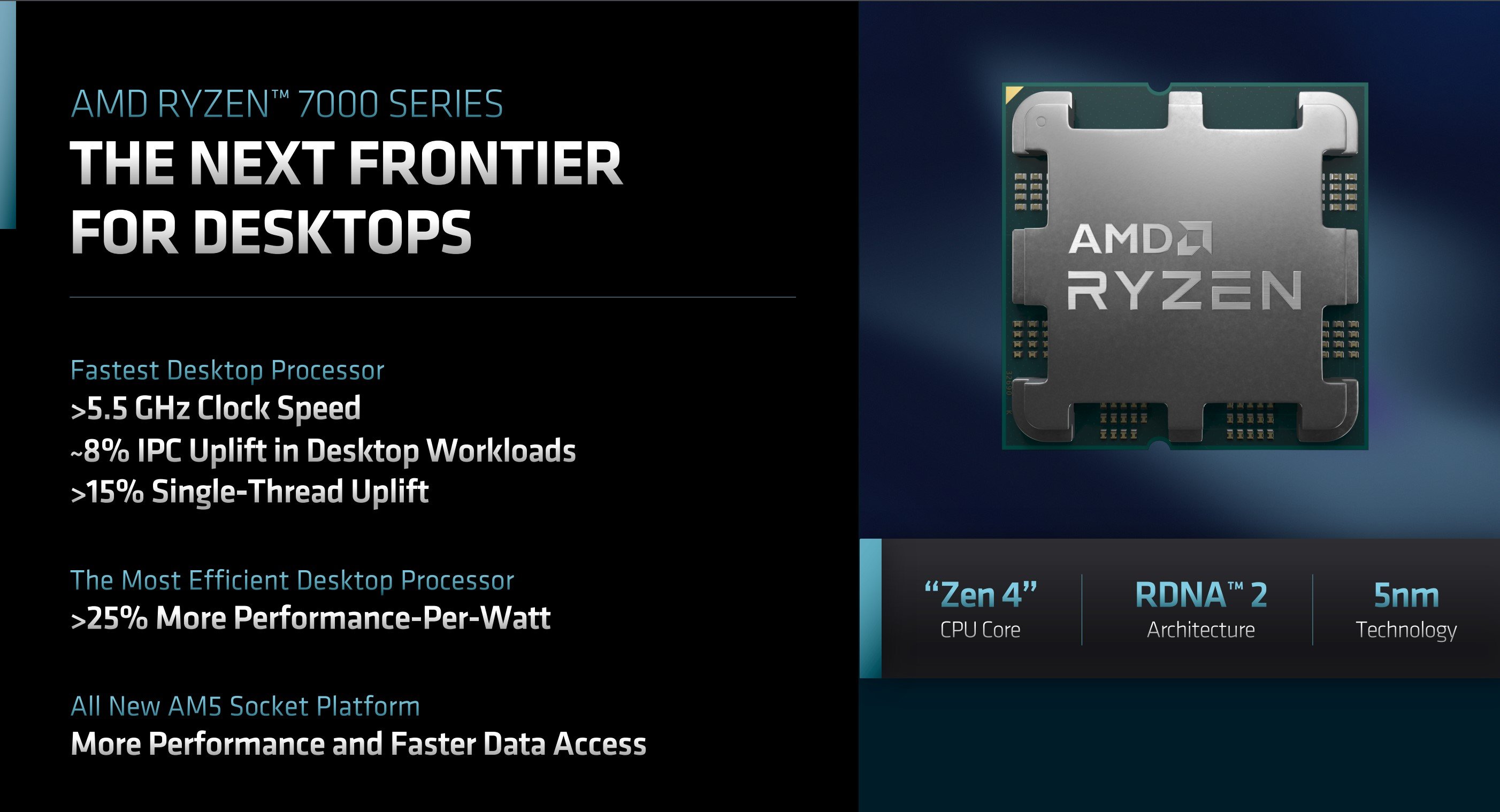
Why the new AMD Ryzen 7000 processors for the AM5 socket are currently not a good deal
Posted by Stefan on 2022-10-11
At the end of September 2022, the time had come: AMD presented its latest desktop processors called AMD Ryzen 7000. Initially, 4 processors with 6 to 16 CPU cores were released.
The new socket AM5 (LGA 1718) is used for the first time, which is intended to replace the very durable socket AM4 introduced in 2017 as AMDs mainstream platform. This includes (depending on the chipset) PCIe 5.0 support as well as the exclusive use of DDR5 memory on all AM5 mainboards.
Officially, DDR5-5200 is the maximum, but with AMDs EXPO Technology which is similar to Intel's XMP 3.0, AMD now also has a solution for easy overclocking of the main memory. AMD itself names DDR5-6000 as the sweet spot for the new AMD Ryzen 7000 processors.
The new socket AM5 (LGA 1718) is used for the first time, which is intended to replace the very durable socket AM4 introduced in 2017 as AMDs mainstream platform. This includes (depending on the chipset) PCIe 5.0 support as well as the exclusive use of DDR5 memory on all AM5 mainboards.
Officially, DDR5-5200 is the maximum, but with AMDs EXPO Technology which is similar to Intel's XMP 3.0, AMD now also has a solution for easy overclocking of the main memory. AMD itself names DDR5-6000 as the sweet spot for the new AMD Ryzen 7000 processors.
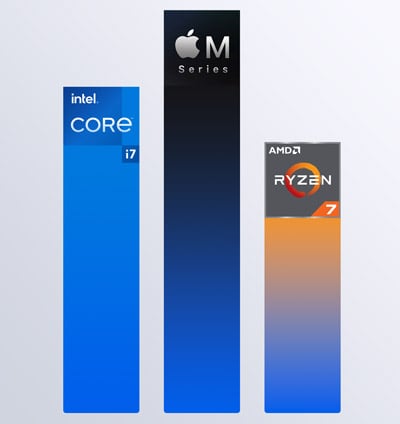
Most popular processors in the first half of 2022
Posted by Stefan on 2022-07-05
In the past we had repeatedly written about our most popular processors. Since this format was quiet popular, I would like to continue this today and introduce you the most popular processors in the first half of 2022.
With more than 2 million page views per month, CPU-Monkey is one of the biggest comparison sites for processors and is currently available in 16 languages.
With more than 2 million page views per month, CPU-Monkey is one of the biggest comparison sites for processors and is currently available in 16 languages.
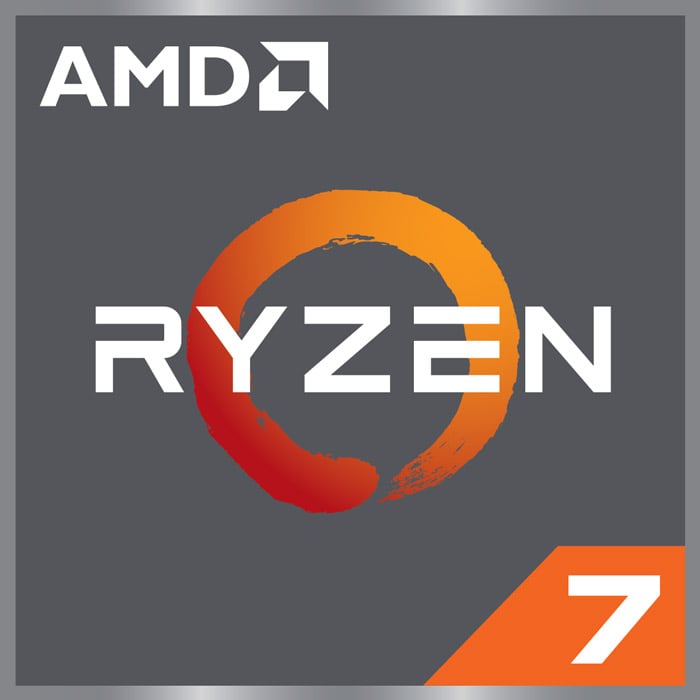
AMD Ryzen 5 7600X and AMD Ryzen 7 7800X are coming in September
Posted by Stefan on 2022-06-20
After we published a performance assessment of the AMD Ryzen 9 7950X last week, the well-known AMD leaker Greymon55 has now posted more informations via Twitter.
He predicts the first four models of the new Zen 4 desktop generation, which AMD would like to present at the end of 2022. There is also an alleged release date of September 15, 2022.
He predicts the first four models of the new Zen 4 desktop generation, which AMD would like to present at the end of 2022. There is also an alleged release date of September 15, 2022.

AMD Ryzen 9 7950X - Cinebench R23 Benchmark projection
Posted by Stefan on 2022-06-10
We give you a preview of AMD's new Zen 4 desktop processors and calculate the performance of the AMD Ryzen 9 7950X top model for the new AM5 socket. The performance data and other technical details come directly from the press kit that AMD released as part of its Financial Analyst Day on June 9, 2022.
Up to 15 percent more single-core performance and 35 percent more multi-core performance of the 16-core model are realistic !
Up to 15 percent more single-core performance and 35 percent more multi-core performance of the 16-core model are realistic !
Comparison of the two processors
the CPU comparison between the Intel Core i9-11900K and the AMD Ryzen 9 5900X shows a slightly higher raw IPC performance on the side of the AMD Ryzen 9 5900X. However, due to the higher single-core clock of the Intel Core i9-11900K, Intel can neutralize this disadvantage and so both desktop processors are about the same in single-core benchmarks.If applications or benchmarks can use all CPU cores of the processors, Intel's 11th generation Core i9 only sees the rear lights of the AMD Ryzen 9 5900X. This can set itself apart from the Intel Core i9 by between 25 and 30%, which is due to the significantly higher number of cores of 12 (24 threads) compared to only 8 (16 threads) of the i9.
Actually, Intel wanted to manufacture the "Rocket Lake S" processors with a new architecture in 10 nm. Presumably due to delivery or production problems, Intel has decided to implement a backport to the tried and tested, but outdated 14 nm production. This is probably the reason why Intel has given the "Rocket Lake S" processors a maximum of 8 CPU cores.
AMD has more room here and can implement up to 16 CPU cores on the AM4 socket. The successor socket should even come with twice the number of CPU cores. New in the Intel Core i9-11900K is the support of PCIe 4.0, which AMD has supported since the previous generation (Ryzen 3xxx). This allows new M.2 SSDs to be connected to the system very quickly. Transfer rates of 7.5 GB / s are possible via four PCIe 4.0 lines.
Both CPUs support 128 GB of RAM of the DDR4-3200 type in two memory channels and achieve transfer rates of approx. 55-60 GB per second. If you want to use faster memory, you can do so with both processors. Intel uses the so-called XMP overclocking profiles that AMD uses with D.O.C.P. similarly supported. Manual overclocking is of course also possible. Both processors manage up to DDR4-3600 without any problems.
Popular comparisons containing this CPUs
back to index










